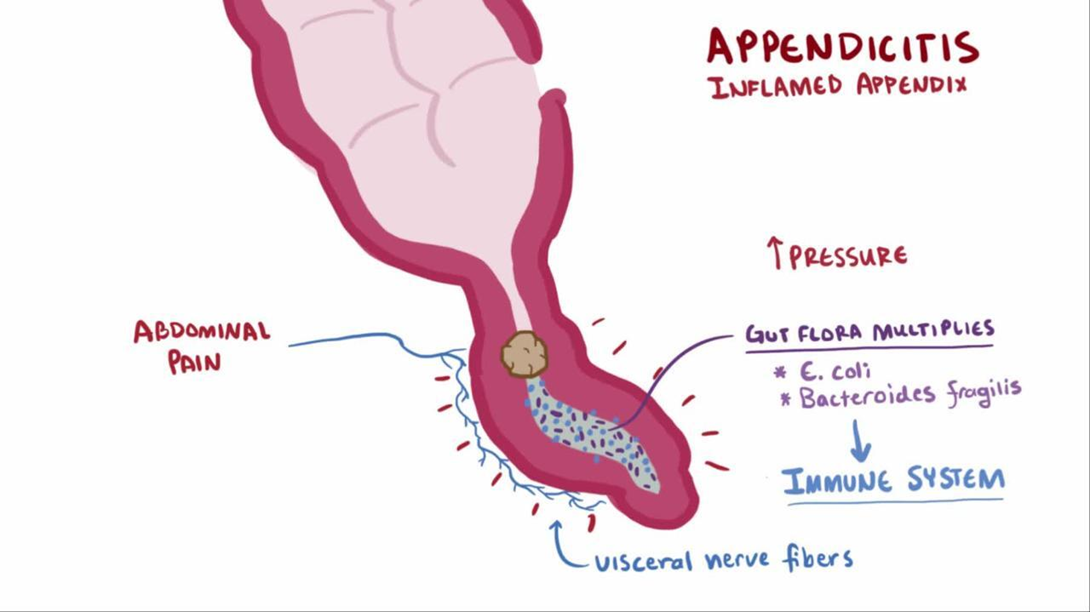While completing a health assessment for a young adult female with acute appendicitis, the client informs the nurse that there is a chance that she may be pregnant. The operating team is preparing to take the client to surgery. Which intervention should the nurse implement immediately?
Perform a bedside pregnancy test.
Continue with surgery as scheduled.
Calculate gestation from last menstrual cycle.
Notify the surgical team to cancel the surgery.
The Correct Answer is A
Choice A reason: This is correct because performing a bedside pregnancy test is the intervention that should be implemented immediately by the nurse. This is to confirm or rule out pregnancy and inform the surgical team of any possible risks or complications that may affect the client or the fetus.

Choice B reason: This is incorrect because continuing with surgery as scheduled is not an appropriate intervention without verifying the pregnancy status of the client. Surgery may pose serious threats to both maternal and fetal health, such as bleeding, infection, anesthesia complications, or miscarriage.
Choice C reason: This is incorrect because calculating gestation from last menstrual cycle is not an accurate or reliable method of determining pregnancy. The menstrual cycle can vary widely among women and may be affected by various factors such as stress, illness, or medication.
Choice D reason: This is incorrect because notifying the surgical team to cancel the surgery is not a necessary intervention unless pregnancy is confirmed. Appendicitis is a medical emergency that requires prompt surgical treatment to prevent rupture, peritonitis, or sepsis.
Nursing Test Bank
Naxlex Comprehensive Predictor Exams
Related Questions
Correct Answer is B
Explanation
Choice A reason: Applying prescribed lotions to the radiation site is a good action for a client with cancer receiving external beam radiation, because it can help moisturize and protect the skin from irritation and breakdown. The client should follow the instructions of the health care provider regarding the type and frequency of lotion application. Therefore, this choice does not indicate a need for further teaching.
Choice B reason: Washing the radiation site with antibacterial soap and water is a bad action for a client with cancer receiving external beam radiation, because it can cause dryness, inflammation, and infection of the skin. The client should use mild soap and water or saline solution to gently cleanse the area without rubbing or scrubbing. Therefore, this choice indicates a need for further teaching.
Choice C reason: Wearing clothing to cover the radiation site is a good action for a client with cancer receiving external beam radiation, because it can help shield the skin from sun exposure and friction. The client should wear loose-fitting, soft, cotton clothing that does not irritate or constrict the area. Therefore, this choice does not indicate a need for further teaching.
Choice D reason: Drying the area with patting motions after taking a shower is a good action for a client with cancer receiving external beam radiation, because it can help prevent trauma and infection of the skin. The client should avoid rubbing or scratching the area or using hair dryers or heating pads on it. Therefore, this choice does not indicate a need for further teaching.
Correct Answer is A
Explanation
Choice A reason: Returning for periodic liver function studies is an important instruction for a client with gouty arthritis who is taking colchicine and indomethacin. These medications can cause liver toxicity, which can manifest as jaundice, abdominal pain, nausea, vomiting, and dark urine. The nurse should advise the client to monitor for these signs and symptoms, and to have regular blood tests to check the liver enzymes and function.
Choice B reason: Massaging joints to relax muscles and decrease pain is not a recommended instruction for a client with gouty arthritis who has acute inflammation of the right ankle and great toe. Massage can increase the blood flow and pressure to the affected joints, which can worsen the pain and swelling. The nurse should advise the client to avoid touching or moving the inflamed joints, and to apply ice packs or cold compresses to reduce the inflammation.
Choice C reason: Limiting use of mobility equipment to avoid muscle atrophy is not a necessary instruction for a client with gouty arthritis who has acute inflammation of the right ankle and great toe. Mobility equipment such as crutches, walkers, or canes can help the client to ambulate safely and comfortably, and to prevent further injury or damage to the affected joints. The nurse should encourage the client to use mobility equipment as needed, and to perform gentle range of motion exercises when the inflammation subsides.
Choice D reason: Substituting natural fruit juices for carbonated drinks is not a helpful instruction for a client with gouty arthritis who is taking colchicine and indomethacin. Fruit juices can contain high amounts of fructose, which can increase the uric acid levels in the blood and trigger gout attacks. Carbonated drinks are not a major risk factor for gout, unless they contain high-fructose corn syrup or alcohol. The nurse should advise the client to drink plenty of water, and to avoid foods and beverages that are high in purines, such as organ meats, seafood, beer, and wine.
Whether you are a student looking to ace your exams or a practicing nurse seeking to enhance your expertise , our nursing education contents will empower you with the confidence and competence to make a difference in the lives of patients and become a respected leader in the healthcare field.
Visit Naxlex, invest in your future and unlock endless possibilities with our unparalleled nursing education contents today
Report Wrong Answer on the Current Question
Do you disagree with the answer? If yes, what is your expected answer? Explain.
Kindly be descriptive with the issue you are facing.
